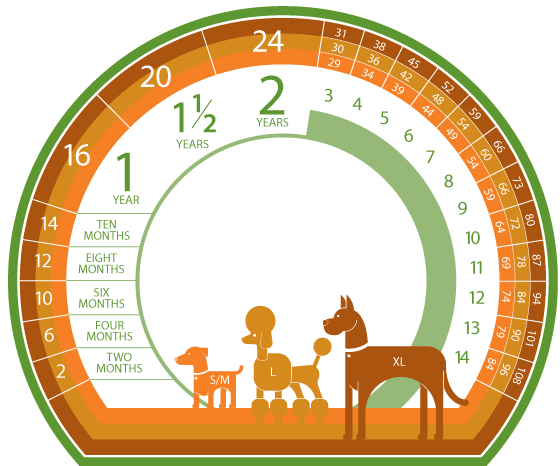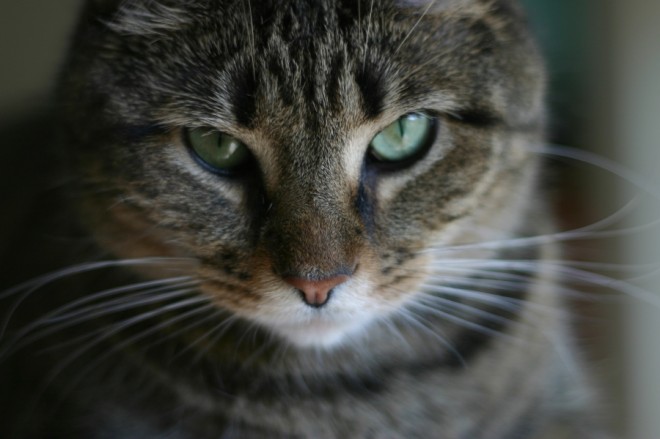 Is your pet a Senior Citizen?
Is your pet a Senior Citizen?
The rule of thumb that a cat or dog ages seven human years for every one of their years has been changed somewhat. With good health care pets are living longer, so your 10 year old cat is not necessarily the equivalent of a 70 year old human! In general, any dog or cat over the age of 7 can begin to have age-related changes in their health. With horses, 15 years is the time we begin to think about “senior issues”.
What changes can you expect in your pet?
1. Slowing down – subtle changes in how your pet moves can be a normal aging process or a sign of ARTHRITIS PAIN, HYPOTHYROIDISM, or other early metabolic disease
2. Graying around the face, muzzle- commonly begins starting at middle age
3. Reduced hearing – may be a normal aging change OR due, a thorough to other medical problems (infection, growth, or foreign body in the ear)
4. Change in eye appearance – Cloudy, bluish, or red/inflamed eyes can indicate more serious problems (allergies, infection, cataracts, or early glaucoma)
5. Muscle atrophy – Mild loss of muscle mass, especially the hind legs, is a common finding in dogs and cats of old age, but can also be a sign of specific disease processes.
6. Dental changes – Dogs and cats may suffer from various states of periodontal disease where infection may build up under the gum line, causing pain and loosening of the teeth. Horses may develop “points” on the tooth surfaces which prevent proper chewing and may lead to weight loss.
What are the signs my senior pet has a problem?
Lameness – Any new lameness, limping that lasts more than 5 days, or lameness in more than one leg should be evaluated by a veterinarian. Arthritis is common in geriatric pets, particularly large breed dogs, overweight dogs and cats and horses. Arthritis can occur in any joint, most commonly the legs, hips, and back. Our AMS/GVC team can offer you many different options to help ease the discomfort of arthritis -including pain medications, joint supplements, Class IV laser treatments, and acupuncture/herbal treatments.
Bad breath, bleeding gums – Good dental health is important not only for the teeth and mouth, but for the overall body as well. As a cat or dog ages, tartar, gum disease, mouth pain, and tooth loss are all potential problems. Oral cancers, infections, and metabolic diseases (kidney disease, Diabetes Mellitus) are also potential causes for bad breath and oral health problems.
Sudden blindness, hearing loss, head tilt / staggering – There are many causes for signs such as these including – infection, poisoning, age-related, cancer, etc. and your animal care team should be consulted to find the cause and begin any necessary treatment. Note: some dogs can develop cataracts in just a few days, with sudden onset diabetes. See your vet as soon as possible.
Change in weight or appetite – Significant changes in weight (loss or gain) can be early signs of disease and should be routinely monitored. In addition, any changes in diet or eating habits. Talk to your vet about the best possible diet for your aging pet.
Change in urine output and thirst – A noticeable increase in thirst or urination can be an important sign indicating more significant disease. The most common causes of increased water intake are diabetes and kidney problems, but other metabolic diseases may also be the cause. Urine leakage or having “accidents” also signal problems, either with infection, loss of sphincter control, or other underlying disease.
Diarrhea or Vomiting – Disturbances within the gastrointestinal tract can be early signs of a deeper problem within the body.
Cognitive Dysfunction – Dogs and cats can experience age-related dementia similar to humans. Talk to our AMS team about treatment options including medication, diet change, and homeopathic treatments (acupuncture and herbal).
Episodes of Collapse – Seizures, heart disease, weakness, and difficulty breathing are just a few of the causes of these types of episodes. Keep a log of any strange events and discuss them with the veterinarian right away.
What can be done to help my companion age gracefully?
Nutrition – As pets age their nutritional requirements also change Pet food specifically formulated for seniors can help keep your pet’s weight under control and reduce consumption of nutrients that are risk factors for the development of other organ or metabolic diseases.
Exercise- Older pets need to keep their bodies moving. If they are cooped up or always lying down, our pet’s bodies will deteriorate much more quickly. Keep your pet as mentally and physically active as possible in order to keep them as healthy.
Pain Management- Please ask our Veterinary Care Team about our Comfort Program.
Check-ups – Once an animal becomes a senior, we recommend semi-annual exams to identify any new problems and a yearly wellness screening. Blue Ridge Veterinary Services offers Senior Health Screens to pick up on problems as soon as possible. By diagnosing illness early, treatment is more effective and, typically less expensive, to keep your pet healthy!

